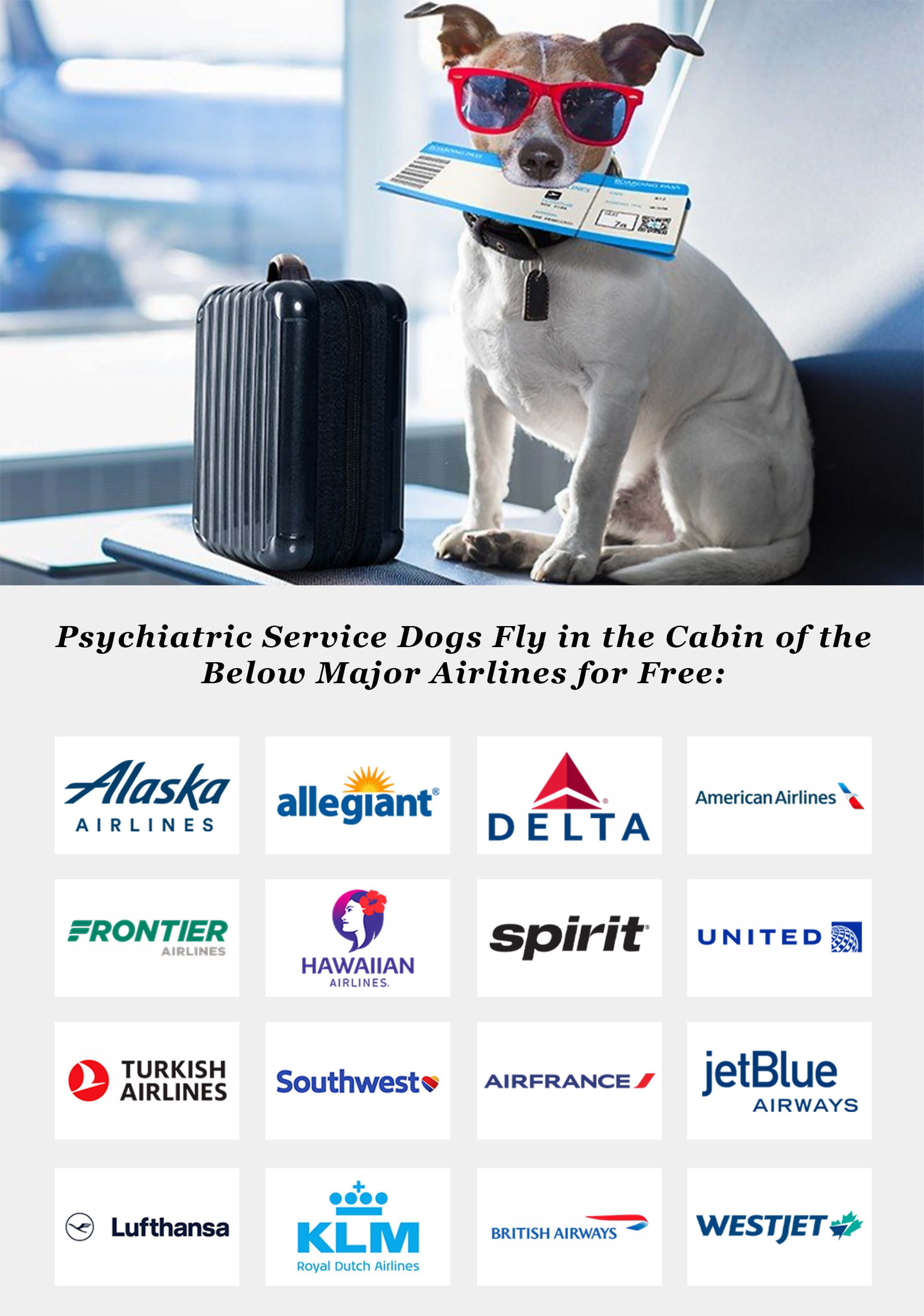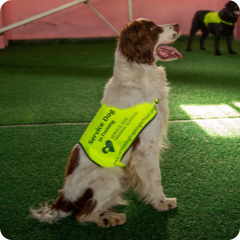

If you are not satisfied with your PSD training program within 14 days, we will refund your payments*

We are confident that our training program will be successful for you. It can be hard to find a trustworthy Psychiatric Service Dog Training program. That is why we offer an assurance—if you're not pleased with your PSD training within 14 days, then 100% of your money back is guaranteed!
We offer comprehensive support packages both during and after the training process. This includes access to our legal team, 24/7 emergency support services, DOT form and airline check-in desk assistance.
Our legal team is ready to tackle any issues you might come across with landlords, airlines, or other accommodation requests. With their help on standby, we can rest assured that your service animal will be accepted.

An Emotional Support Dog (ESD) and a Psychiatric Service Dog (PSD) are both types of assistance animals that can provide support to individuals with mental health conditions, but there are some important differences between the two.
An Emotional Support Dog (ESD) is a type of assistance animal that provides emotional support and comfort to their owners. They do not receive any specific training to perform tasks related to a person's mental health condition. Instead, their presence alone can provide a calming influence and help to alleviate symptoms of anxiety, depression, and other emotional or psychological conditions.
On the other hand, a Psychiatric Service Dog (PSD) is a highly trained assistance animal that is specifically trained to perform tasks to assist individuals with psychiatric or mental health disabilities. These dogs undergo specialized training to perform tasks such as interrupting self-harming behaviors, and providing deep pressure therapy during panic attacks or anxiety episodes. PSDs are trained to perform these tasks to help their handlers manage their symptoms and improve their overall quality of life.
In summary, while both Emotional Support Dogs and Psychiatric Service Dogs can provide emotional support and companionship to individuals with mental health conditions, Psychiatric Service Dogs undergo specialized training to perform specific tasks that can help individuals with their psychiatric or mental health disabilities. PSDs belong to service animals and they will have full public access, and ESDs do not have public access rights under the Americans with Disabilities Act (ADA).
Psychiatric Service Dogs (PSDs) are trained to perform tasks that mitigate the symptoms of their handler's psychiatric or mental health disability. The standard of training for PSDs can vary, but generally, they undergo extensive training that is tailored to their handler's specific needs and conditions.
Some examples of tasks that a PSD might be trained to perform include:
The specific tasks that a PSD is trained to perform will depend on the individual needs of their handler and their particular disability. It's important to note that there is no specific registration or licensing requirement for PSDs under the Americans with Disabilities Act (ADA). However, PSDs must be trained to perform specific tasks that mitigate their handler's disability in order to be considered a Service Dog under the ADA. Most business owners, like Airlines require evidence of trained Psychiatric Service Dogs (PSDs) before allowing them to accompany their handlers in the cabin at no cost. It's also important to note that some provinces in Canada may have their own laws regarding service animals and may have different requirements for PSDs.
To qualify for a Psychiatric Service Dog (PSD), an individual must have a psychiatric or mental health disability that substantially limits one or more major life activities. Examples of such disabilities may include anxiety disorders, depression, bipolar disorder, post-traumatic stress disorder (PTSD), and obsessive-compulsive disorder (OCD), among others.
symptoms of the person's disability. For example, a PSD may be trained to alert their handler to signs of an oncoming panic attack or anxiety episode, provide deep pressure therapy to alleviate symptoms of anxiety or panic, retrieve medication or other items during a psychiatric emergency, or interrupt self-harming behaviors.
In addition to having a psychiatric or mental health disability and a disability-related need for the dog's assistance, an individual must also be able to care for and control the dog. This means that they must have the ability to provide for the dog's physical, emotional, and behavioral needs, as well as the ability to train and control the dog in public and other settings.
Psychiatric Service Dogs (PSDs) are trained to perform specific tasks that mitigate the symptoms of their handler's psychiatric or mental health disability. PSDs can be either owner-self trained, or by a professional dog trainer or organization that has experience training service dogs, and should know the specific tasks that can be trained to mitigate the symptoms of these conditions.
When you train your PSD with SDTSI, we will provide not only guidance during the training but also a certification for your trained PSD that includes the tasks it has been trained to perform. Our service dog training school has established standards for training and certifying PSDs and can provide resources and support to handlers and trainers.








